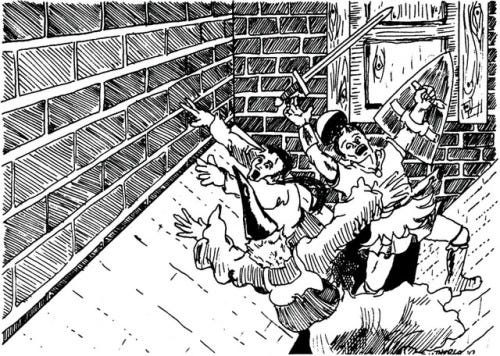The Myth of OSR Lethality
OSR games aren’t lethal, modern players have incorrect game assumptions. It’s about agency, not lethality.
The myth of OSR lethality:
"I want a reasonable expectation that my character can live. I want to invest in them."
This is what I hear from most modern players that have some exposure to the OSR (“Old School Renaissance”). This is a reasonable expectation and how most people enjoy the hobby today.
I feel that people view "old school" lethality through a modern lens. I believe it would benefit us modern players to "turn a (modern gaming concept) completely on it's head" as Matt Finch says.
For some in the OSR, they really do like the player challenge aspect. They like that their characters can die, "life is cheap." This is entertaining for some.
But for others, old school games provide plenty of enjoyment and features aside from just player challenge and suspense.
Old school games and gaming style:
Emphasize player choice and agency
Are minimalist and approachable
Often require less prep and work on the part of both players and game masters
Create procedures for the world such as random tables and reaction rolls that can surprise both the GM and allow a story to “emerge” rather than relying on a pre-written plot.
There’s a lot to appreciate about old school design principles that emphasize exploration and wonder over combat and action. So, can you also enjoy roleplaying and in depth character development? Does it have to be so lethal?
I don't think it is lethal.
In a modern game if you discover a pirate map that says "here be dragons", in all likelihood the Game Master has prepared for a possibility that the characters will go there in the story. The dragon, it's story, and encounters have been placed there FOR the characters to fit around them. Balance, as they say.
In an old school game the dragon is simply there. Level 1, level 10, it doesn't matter. It's there regardless of if your character exists. In this way, there's an opportunity for adult "make-believe" rather than a curated roleplaying experience. It is as if the fantasy world is real. What you do with that is up to you.
Do you decide to gather a warband and march on the dragon's lair at level 1? You are all incinerated! Is the game lethal? Or did the *players* decide to make it that way?
I propose that old school games are *not as lethal as they have a reputation to be*. They are rather *honest.* The *players* have the responsibility for deciding how lethal of an experience they want.
OSR games are about *agency*, not *lethality*.
Please also see this previous Reddit thread by “amp108” in 2020 by the same name:
https://www.reddit.com/r/osr/comments/fjyd16/the_myth_of_osr_lethality/



Well, there were things like all poisons, even weak ones, being instant kills if you failed your saving throw. And how characters could start out with one hit point. And the rules said that you died at zero hit points -- though I never knew a DM to play it that way.
My sense of what happens in a lot of OSR games is:
1) the players go in for the first time, not knowing what to expect
2) the players fight two goblins and are killed by a crossbow bolt to the neck
3a) the players quit and never play again
3b) the players say "wait, we can die in this game", roll up new characters and attack the goblins in their sleep.
The important part I feel is that the players should have enough information to make it not a lottery or a meatgrinder. "This part of the map is dangerous, decide if you want to risk going there" is fun. "One of these four identical doors means instant death" is not.